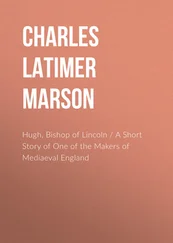Paul Vinogradoff - Villainage in England - Essays in English Mediaeval History
Здесь есть возможность читать онлайн «Paul Vinogradoff - Villainage in England - Essays in English Mediaeval History» — ознакомительный отрывок электронной книги совершенно бесплатно, а после прочтения отрывка купить полную версию. В некоторых случаях можно слушать аудио, скачать через торрент в формате fb2 и присутствует краткое содержание. Жанр: foreign_prose, Юриспруденция, История, foreign_edu, foreign_antique, на английском языке. Описание произведения, (предисловие) а так же отзывы посетителей доступны на портале библиотеки ЛибКат.
- Название:Villainage in England: Essays in English Mediaeval History
- Автор:
- Жанр:
- Год:неизвестен
- ISBN:нет данных
- Рейтинг книги:4 / 5. Голосов: 1
-
Избранное:Добавить в избранное
- Отзывы:
-
Ваша оценка:
- 80
- 1
- 2
- 3
- 4
- 5
Villainage in England: Essays in English Mediaeval History: краткое содержание, описание и аннотация
Предлагаем к чтению аннотацию, описание, краткое содержание или предисловие (зависит от того, что написал сам автор книги «Villainage in England: Essays in English Mediaeval History»). Если вы не нашли необходимую информацию о книге — напишите в комментариях, мы постараемся отыскать её.
Villainage in England: Essays in English Mediaeval History — читать онлайн ознакомительный отрывок
Ниже представлен текст книги, разбитый по страницам. Система сохранения места последней прочитанной страницы, позволяет с удобством читать онлайн бесплатно книгу «Villainage in England: Essays in English Mediaeval History», без необходимости каждый раз заново искать на чём Вы остановились. Поставьте закладку, и сможете в любой момент перейти на страницу, на которой закончили чтение.
Интервал:
Закладка:
And still we must not forget, in drawing such definitions, that we reach them only by looking at things from such a height that all lesser inequalities and accidental features of the soil are no longer sensible to the eyesight. In finding one's way over the land one must needs go over these very inequalities and take into account these very features. If, from a general survey of medieval servitude, we turn to the actual condition of the English peasantry, say in the thirteenth century, the first fact we have to meet will stand in very marked contrast to our general proposition.
Importance of legal treatment.
The majority of the peasants are villains, and the legal conception of villainage has its roots not in the connexion of the villain with the soil, but in his personal dependence on the lord.
If this is a fact, it is a most important one. It would be reckless to treat it as a product of mere legal pedantry 30 30 Thorold Rogers, History of Agriculture and Prices, i. 70; Six Centuries of Work and Wages, 44. Cf. Chandler, Five Court Rolls of Great Cressingham in the county of Norfolk, 1885, pp. viii, ix.
. The great work achieved by the English lawyers of the twelfth and thirteenth centuries was prompted by a spirit which had nothing to do with pedantry. They were fashioning state and society, proudly conscious of high aims and power, enlightened by the scholastic training of their day, but sufficiently strong to use it for their own purposes; sound enough not to indulge in mere abstractions, and firm enough not to surrender to mere technicalities 31 31 Stubbs, Seventeen Lectures, 304, 305; Maitland, Introduction to the Note-book of Bracton, 4 sqq.
. In the treatment of questions of status and tenure by the lawyers of Henry II, Henry III, and Edward I, we must recognise a mighty influence which was brought to bear on the actual condition of things, and our records show us on every page that this treatment was by no means a matter of mere theory. Indeed one of the best means that we have for estimating the social process of those times is afforded by the formation and the break up of legal notions in their cross influences with surrounding political and economic facts.
Definition and terminology of villainage at Common Law.
As to the general aspect of villainage in the legal theory of English feudalism there can be no doubt. The 'Dialogus de Scaccario' gives it in a few words: the lords are owners not only of the chattels but of the bodies of their ascripticii , they may transfer them wherever they please, 'and sell or otherwise alienate them if they like 32 32 Dial. de Scacc. ii. 10 (Select Charters, p. 222). Cf. i. 10; p. 192.
.' Glanville and Bracton, Fleta and Britton 33 33 Glanville, v. 5; Bracton, 4, 5; Fleta, i. 2; Britton, ed. Nichols, i. 194.
follow in substance the same doctrine, although they use different terms. They appropriate the Roman view that there is no difference of quality between serfs and serfs: all are in the same abject state. Legal theory keeps a very firm grasp of the distinction between status and tenure, between a villain and a free man holding in villainage, but it does not admit of any distinction of status among serfs: servus , villanus , and nativus are equivalent terms as to personal condition, although this last is primarily meant to indicate something else besides condition, namely, the fact that a person has come to it by birth 34 34 Bracton, 5; Britton, i, 197. Pollock, Land-laws, App. C, is quite right as to the fundamental distinction between status and tenure, but he goes too far, I think, in trying to trace the steps by which names originally applying to different things got confused in the terminology of the Common Law. Annotators sometimes indulged in distinctions which contradict each other and give us no help as to the law. The same Cambridge MS. from which Nichols gives an explanation of servus , nativus , and villanus (i. 195) has a different etymology in a marginal note to Bracton. 'Nativus dicitur a nativitate—quasi in servitute natus, villanus dicitur a villa, quasi faciens villanas consuetudines racione tenementi, vel sicut ille qui se recognoscit ad villanum in curia quae recordum habet, servus vero dicitur a servando quasi per captivitatem, per vim et injustam detentionem villanus captus et detentus contra mores et consuetudines juris naturalis' (Cambr. Univers. MSS. Dd. vii. 6. I have the reference from my friend F.W. Maitland).
. The close connexion between the terms is well illustrated by the early use of nativa , nieve, 'as a feminine to villanus .'
Treatment of villainage in legal practice.
These notions are by no means abstractions bereft of practical import. Quite in keeping with them, manorial lords could remove peasants from their holdings at their will and pleasure. An appeal to the courts was of no avail: the lord in reply had only to oppose his right over the plaintiff's person, and to refuse to go into the subject-matter of the case 35 35 Placita Coram Rege, Easter, 14 Edw. I, m. 9: 'Willelmus Barantyn et Radulfus attachiati fuerunt ad respondendum Agneti de Chalgraue de placito quare in ipsam Agnetem apud Chalgraue insultum fecerunt et ipsam verberaverunt, vulneraverunt et male tractaverunt, et bona et catalla sua in domibus ipsius Agnetis apud Chalgraue scilicet ordeum et avenam, argentum, archas et alia bona ad valenciam quadraginta solidorum ceperunt et asportaverunt; et ipsam Agnetem effugaverunt de uno mesuagio et dimidia virgata terre de quibus fuit in seysina per predictum Willelmum que fuerunt de antiquo dominico per longum tempus; nec permiserunt ipsam Agnetem morari in predicta villa de Chalgraue; et eciam quandam sororem ipsius Agnetis eo quod ipsa soror eam hospitavit per duas noctes de domibus suis eiecit, terra et catalla sua abstulit. Et predicti Willelmus et Radulfus veniunt. Et quo ad insultacionem et verberacionem dicunt quod non sunt inde culpabiles. Et quo ad hoc quod ipsa Agnes dicit quod ipsam eiecerunt de domibus et terris suis, dicunt quod predicta Agnes est natiua ipsius Willelmi et tenuit predicta tenementa in villenagio ad voluntatem ipsius Willelmi propter quod bene licebat eidem Willelmo ipsam de predicto tenemento ammouere.—Juratores dicunt … quod predicta tenementa sunt villenagium predicti Willelmi de Barentyn et quod predicta Agnes tenuit eadem tenementa ad voluntatem ipsius Willelmi.' Cf. Y.B. 12/13 Edw. III (ed. Pike), p. 233 sqq., 'or vous savez bien qe par ley de terre tout ceo qe le vileyn ad si est a soun seignour;' 229 sqq., 'qar cest sa terre demene, et il les puet ouster a sa volunte demene.'
. Nor could the villain have any help as to the amount and the nature of his services 36 36 Coram Rege, Mich., 3 4 Edw. I, m. 1: 'Ricardus de Assheburnham summonitus fuit ad respondendum Petro de Attebuckhole et Johanni de eadem de placito quare, cum ipsi teneant quasdam terras et tenementa de predicto Ricardo in Hasseburnham ac ipsi parati sunt ad faciendum ei consuetudines et servicia que antecessores sui terras et tenementa illa tenentes facere consueverint, predictus Ricardus diversas commoditates quam ipsi tam in boscis ipsius Ricardi quam in aliis locis habere consueverint eisdem subtrahens ipsos ad intollerabiles servitutes et consuetudines faciendas taliter compellit quod ex sua duricia mendicare coguntur. Et unde queruntur quod, cum teneant tenementa sua per certas consuetudines et certa servicia, et cum percipere consueverunt boscum ad focum et materiam de bosco crescente in propriis terris suis, predictus Ricardus ipsos non permittit aliquid in boscis suis capere et eciam capit aueria sua et non permittit eos terram suam colere.—Ricardus dicit, quod non debet eis ad aliquam accionem respondere nisi questi essent de vita vel membris vel de iniuria facta corpori suo. Dicit eciam quod nativi sui sunt, et quod omnes antecessores sui nativi fuerunt antecessorum suorum et in villenagio suo manentes.'
; the King's Courts will not examine any complaint in this respect, and may sometimes go so far as to explain that it is no business of theirs to interfere between the lord and his man 37 37 Note-book of Bracton, pl. 1237: 'dominus Rex non vult se de eis intromittere.'
. In fact any attempt on the part of the dependant to assert civil rights as to his master will be met and defeated by the 'exceptio villenagii 38 38 It occurs in the oldest extant Plea Roll, 6 Ric. I; Rot. Cur. Regis, ed. Palgrave, p. 84: 'Thomas venit et dicit quod ipsa fuit uxorata cuidam Turkillo, qui habuit duos filios qui clamabant libertatem tenementi sui in curia domini Regis … et quod ibi dirationavit eos esse villanos suos, et non defendit disseisinam … Et ipsi Elilda et Ricardus defendunt vilenagium et ponunt se super juratam,' etc.
.' The state refuses to regulate the position of this class on the land, and therefore there can be no question about any legal 'ascription' to the soil. Even as to his person, the villain was liable to be punished and put into prison by the lord, if the punishment inflicted did not amount to loss of life or injury to his body 39 39 Maitland, Select Pleas of the Crown (Selden Soc. I), pl. 3: 'Quendam nativum suum quem habuit in vinculis eo quod voluit fugere.' Bract. Notebook, pl. 1041: 'Petrus de Herefordia attachiatus fuit ad respondendum R. fil. Th. quare ipse cepit Ricardum et eum imprisonauit et coegit ad redempcionem 1 marce. Et Petrus venit alias et defendit capcionem et imprisonacionem set dicit quod villanus fuit,' etc. It must be noted, however, that in such cases it was difficult to draw the line as to the amount of bodily injury allowed by the law, and therefore the King's courts were much more free to interfere. In the trial quoted on p. 45, note 2, the defendants distinguish carefully between the accusation and the civil suit. They plead 'not guilty' as to the former. And so Bishop Stubbs' conjecture as to the 'rusticus verberatus' in Pipe Roll, 31 Henry I, p. 55 (Constit. Hist. i. 487), seems quite appropriate. The case is a very early one, and may testify to the better condition of the peasantry in the first half of the twelfth century.
. The extant Plea Rolls and other judicial records are full of allusions to all these rights of the lord and disabilities of the villain, and it must be taken into account that only an infinitely small part of the actual cases can have left any trace in such records, as it was almost hopeless to bring them to the notice of the Royal Courts 40 40 As to the actual treatment experienced by the peasants at the hands of their feudal masters, see a picturesque case in Maitland's Select Pleas of the Crown (Selden Soc.), 203.
.
Интервал:
Закладка:
Похожие книги на «Villainage in England: Essays in English Mediaeval History»
Представляем Вашему вниманию похожие книги на «Villainage in England: Essays in English Mediaeval History» списком для выбора. Мы отобрали схожую по названию и смыслу литературу в надежде предоставить читателям больше вариантов отыскать новые, интересные, ещё непрочитанные произведения.
Обсуждение, отзывы о книге «Villainage in England: Essays in English Mediaeval History» и просто собственные мнения читателей. Оставьте ваши комментарии, напишите, что Вы думаете о произведении, его смысле или главных героях. Укажите что конкретно понравилось, а что нет, и почему Вы так считаете.












